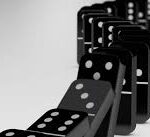Poker is a game of chance and skill, where the best hand wins. There are many different variants of this card game, but most involve betting. A player may choose to bet, raise, or fold, depending on the strength of their hand. A player can also use bluffing to try to win the pot, but this is risky and should only be done with high value hands.
Each player is dealt two cards, which are called hole cards. These are hidden from other players and can only be seen by the player himself. Once the betting is completed, each player shows their cards and the person with the highest hand wins. A poker game can last for several rounds, and players can raise and re-raise during the hand.
In most poker games, the best hand is a pair of Aces or Kings, or a Straight (five consecutive cards in rank from one suit). A flush includes three matching cards of the same rank and two unmatched cards. A full house is four matching cards of the same rank and two matching unmatched cards. A straight flush is five consecutive cards of the same rank, and can include wild cards (dueces or one-eyed jacks) in some games.
A basic strategy for playing poker involves reading the other players. This can be a difficult task, but it is crucial to the success of a poker player. By studying the body language of other players, you can determine their likely hand and bet appropriately. For example, if the player to your left is checking after seeing a flop of A-2-6, you can assume that they have a weak hand and are trying to force other players to put money into the pot.
When a player is bluffing, they can show signs of nervousness or excitement to deceive other players. These signs are known as tells and can include shallow breathing, sighing, nose flaring, eyes watering, mouth opening and closing, blinking rapidly, or an increased pulse in the neck or temple area. A hand over the mouth or shaking of the hands can also indicate a bluff.
While it is tempting to play poker for as much as you can afford to lose, it is important to start at the lowest limits and work your way up. This will allow you to practice the game without spending too much, and it will help you develop your skills as you learn the game. It is also recommended to track your wins and losses in order to analyze your performance and make adjustments going forward.
